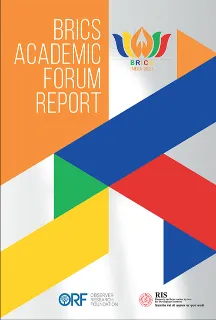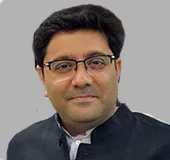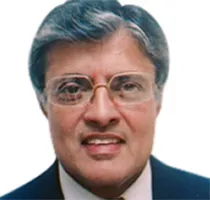The Observer Research Foundation (ORF) and Research and Information System for Developing Countries (RIS) co-hosted the BRICS Academic Forum from 3-6 August, under India’s presidency of the BRICS in 2021.
This year’s BRICS Academic Forum convened academics, experts, researchers, and analysts on a range of international policy issues aff ecting the fi ve BRICS nations and the world in the run up to the BRICS Summit 2021. The forum was privileged to have the inaugural address by India’s External Aff airs Minister Dr. S. Jaishankar, valedictory address by Sanjay Bhattacharyya, India’s Sherpa for BRICS, and a conversation with P. Harish, India’s Sous-Sherpa for BRICS.
The policy discussions between experts were guided by the four primary themes of the BRICS academic process for 2021—multilateralism, digitalisation, international security, and climate change and Sustainable Development Goals (SDGs). Specifi cally, the sessions included topics such as the post-pandemic world order, green energy, sustainable consumption, global health, counterterrorism, trade and resilient supply chains, SDGs, digital public goods, globalisation, skilling and workforce development, and women’s leadership.
Over the course of four days, the BRICS Academic Forum saw participation from nearly 80 experts and academics. Discussions at the forum made it clear that the pandemic has permanently altered the global order. It has highlighted the weaknesses of global institutions in tackling contemporary challenges, and that greater coordination is necessary among nations to respond to global problems.
There was consensus among the experts that the current multilateral system has become ‘out-of-sync’ with the realities of today’s world and that instruments of global governance must become more participatory and representative.
What is particularly troubling is the asymmetric eff ect of the pandemic on the world’s poor. A key learning from COVID-19 has been the need to focus on research, primary healthcare, and community engagement for tackling global healthcare issues. As expected, women have been the hardest hit, and a women-led economic growth can only be achieved if new policy frameworks provide support to those in the informal and gig economy. A welcome development has been the experiments with the use of technology and digital means for achieving the SDGs, especially for those increasingly left behind. Here India’s experience with digital public goods was discussed as a model worthy of emulation.
While it was natural for the pandemic to take centrestage at the discussions, experts reiterated their call for keeping a focus on green energy and international security, which continue to be high on the list of priorities for all BRICS nations.
For green transition to succeed, both developed and developing nations were called to fulfi ll their promises as a precursor to the COP26 negotiations, and to collaborate on developing new technologies and a new taxonomy to support the transition.
A similar focus is required for addressing terrorism, particularly as illegal activities shift online to new internet and digital means. Geopolitical developments are already testing the resiliency of global supply chains. A new mapping of global trade interdependencies has become crucial for making policymaking more targeted and eff ective.
We are grateful for our colleagues at the BRICS Think Tank Council (BTTC) from Brazil, Russia, China and South Africa for supporting us through the process under India’s presidency. We are grateful to BTTC for identifying and deputing the fi nest scholars from their respective nations for the forum. We are also extremely grateful to the scholars for their time and their invaluable inputs.
We are extremely grateful for the guidance and support of the Ministry of External Aff airs, particularly for encouraging us to explore new policy ideas for emerging global challenges. Finally, this report would not be possible without the rapporteurs and editors who worked tirelessly in noting, collating, and summarising the important points discussed at the forum.
Read the full report
here
Project coordinators: Jhanvi Tripathi and Shruti Jain
The views expressed above belong to the author(s). ORF research and analyses now available on Telegram! Click here to access our curated content — blogs, longforms and interviews.

 PDF Download
PDF Download



 PREV
PREV


